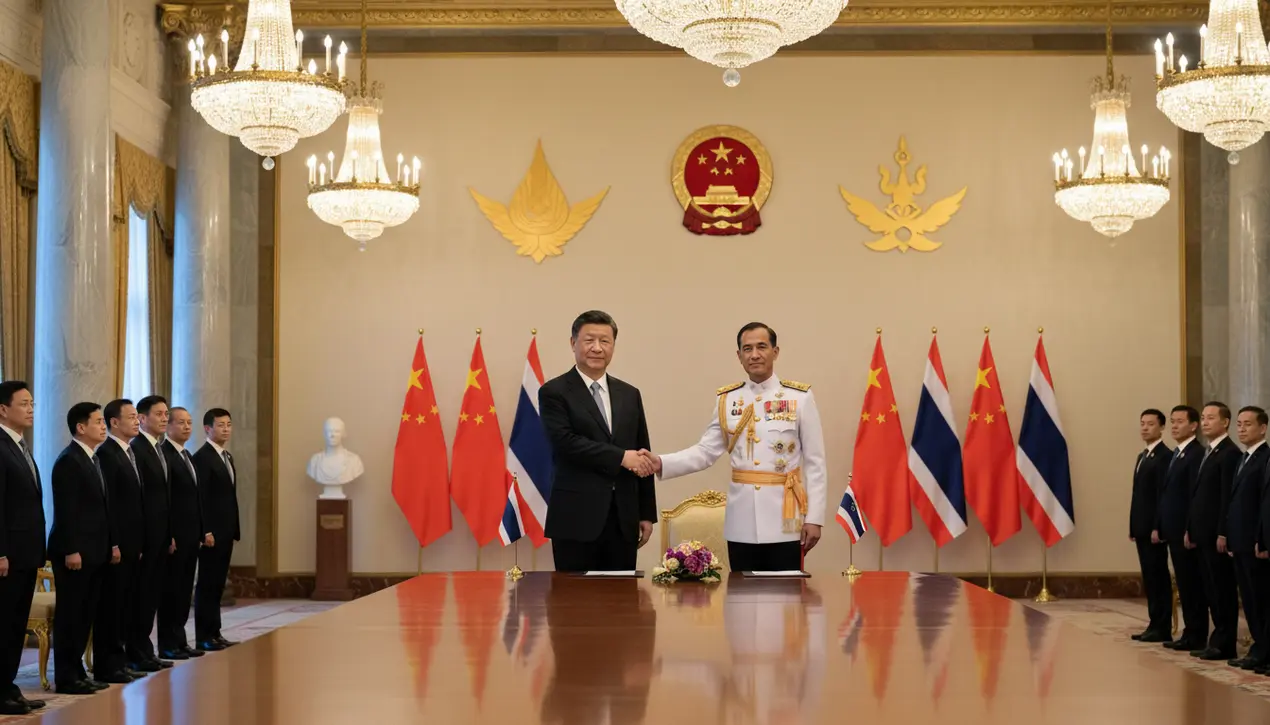
PoliticsdiplomacyBilateral Relations
Xi Jinping Strengthens China-Thailand Ties During King's Visit.
RO
Robert Hayes
4 hours ago7 min read2 comments
In a display of diplomatic choreography that would impress any seasoned political strategist, Chinese President Xi Jinping hosted Thailand's King Maha Vajiralongkorn at Beijing's Great Hall of the People, a move that signals a deliberate tightening of the Sino-Thai alliance at a time of significant regional realignment. Framing the nations as 'true good relatives, friends and partners,' Xi’s rhetoric was more than mere pleasantry; it was a strategic pitch to strengthen strategic alignment, a phrase laden with implications for the future of Southeast Asia.This meeting, reminiscent of the high-level engagements Churchill would have championed to solidify wartime coalitions, underscores a broader geopolitical contest. China, facing increased economic headwinds and a tightening US-led containment strategy in the Pacific, views Thailand—a traditional US treaty ally with a complex, often ambivalent, relationship with Washington—as a pivotal piece in its Indo-Pacific chessboard.The kingdom's strategic location, bordering Myanmar, Laos, and Cambodia, offers China not only a crucial gateway to the Mekong subregion but also a potential naval partner, with the Thai port of Sattahip being a frequent subject of analytical speculation. Historically, Sino-Thai relations have oscillated, but the current warming trend, accelerated by substantial Chinese infrastructure investments, including high-speed rail projects, mirrors a pattern of Beijing using economic statecraft to cultivate influence, much as great powers have done for centuries.The royal visit itself carries profound domestic weight for Thailand, where the monarchy remains a central pillar of political stability, and King Vajiralongkorn’s direct engagement with Beijing serves to legitimize this deepening partnership. Analysts will be watching closely for the tangible outcomes, which could range from expanded military cooperation and intelligence sharing to more synchronized positions within ASEAN, potentially diluting the bloc's consensus on contentious issues like the South China Sea.The consequences are far-reaching: a firmly pro-Beijing Bangkok could alter the balance of power in Southeast Asia, compelling neighbors like Vietnam and the Philippines to recalibrate their own foreign policies and offering China a durable ally capable of challenging US influence. This is not merely a bilateral handshake; it is a calculated maneuver in the grand strategic game, one whose ripple effects will be studied by policy makers in capitals from Washington to Canberra for years to come.
#featured
#China
#Thailand
#Xi Jinping
#King Vajiralongkorn
#diplomacy
#bilateral relations
#strategic alignment
Stay Informed. Act Smarter.
Get weekly highlights, major headlines, and expert insights — then put your knowledge to work in our live prediction markets.
Related News
Comments
Loading comments...
© 2025 Outpoll Service LTD. All rights reserved.